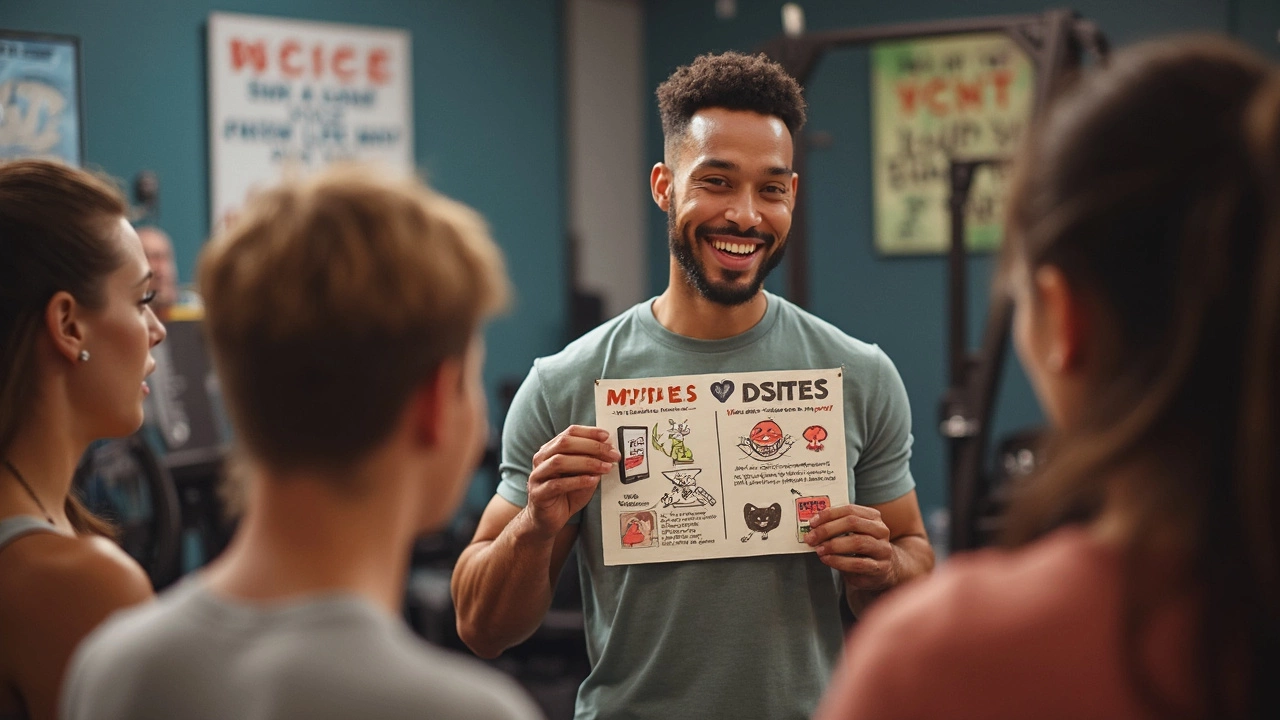
Once upon a squat rack, someone asked a personal trainer what really got under their skin. Spoiler alert: It’s not sweaty benches, tacky lycra, or early-morning alarms. If you want to annoy a personal trainer, skip your warm-up, arrive late, talk about detox teas, argue over science, scroll Instagram between deadlifts, or turn up hungry with zero breakfast. Training people is more than counting reps and shouting motivational quotes. It’s a blend of guiding, adapting, teaching, and sometimes dealing with honest-to-goodness nonsense. If you’ve never seen a trainer grit their teeth behind a patient smile, you may be the exception—or maybe you just haven’t noticed.
Client Habits That Drive Trainers Nuts
Some people think their personal trainer has nerves of steel, but there are little things that can really test their patience. The classic: chronic lateness. Showing up ten minutes late steals time you’ve paid for, and turns a carefully planned session into a rushed mess. Even worse, ghosting entirely—it’s like making a dinner reservation and then binge-watching reality TV instead. Cancellations within an hour? Forget about it. Trainers have packed schedules, and late changes wreck their day, their income, and sometimes their whole vibe around helping people.
Another pain point: people who come unprepared. No water, no snack, no gear, no plan. Some clients roll in without eating, so by set three, they’re lightheaded and grumpy. Others skip sleep and brag about running on three hours. Trainers have to juggle safety, effectiveness, and the very real risk of a mid-session nap. And there’s always that one person who thinks "I’m just not feeling it" is an acceptable excuse. Commitment matters. Even trainers who love to adapt don't want to reinvent your whole plan on the fly every single day.
Here’s something you probably didn’t expect: cell phones. Not just for checking the time—people scroll, text, take calls, even browse gym memes. It’s frustrating for trainers to lose momentum because a client needs to reply to an email between burpees. Not paying attention can lead to sloppy form, injuries, bad progress, or just wasted time. Trainers want to give you their best. In return, they want yours too. Focus is a big part of the deal.
A surprising fact from a big national fitness survey: trainers reported that clients who constantly compare themselves to others, especially on social media, made the work much tougher. Fixating on Instagram-perfect bodies, skipping realistic goals, or wanting overnight results—these habits sabotage everything trainers work to build. It’s tough to stay positive when someone keeps moving the finish line, or expects you to work magic with zero effort.
Common Workout Myths That Annoy Trainers
Let’s talk fitness myths, because personal trainers have heard it all. Magic pills that melt fat, detox teas that ‘cleanse’ your body, or Instagram-famous exercises that promise six-pack abs in a week—these misconceptions are everywhere. If a client brings up spot reduction or insists that doing 100 crunches will “burn belly fat,” every trainer just wants to bury their face in a kettlebell. There’s no such thing as working out one spot for targeted fat loss, and real science backs that up. Yet trainers have to explain this over and over, sometimes during every session.
The “light weights for toning” talk also never ends. Many believe that lifting heavier weights will make them 'bulky' overnight. Trainers know that muscle takes time, effort, and usually a lot more food than most people eat. They wish clients would trust the process, not social media influencers selling fear. Same goes for the myth that running equals instant fat loss. Sure, cardio has benefits, but building muscle with resistance training is what gives bodies that strong, fit look most people chase anyway.
Stretching before lifting heavy? Not the way you might think. Static stretches before a workout can lower power and strength in the session, yet this advice from the 90s somehow never dies. Trainers need to keep repeating: dynamic warm-ups, then static stretches after. Want another myth? That you have to “feel sore” after a session for it to count. Soreness means you did something new, not necessarily something better. Progress comes from consistency, challenge, and recovery—not by chasing that next-day pain.
What stings the most? Clients who resist evidence-based advice in favor of rumors or trends. Trainers spend hours earning certifications, learning sports science, studying nutrition, and staying current. When someone waves away all of that for a celebrity’s smoothie or a TikTok trend, it’s not just annoying—it’s discouraging. They aren’t just trainers; they’re coaches and teachers who want people to reach their best, which is tough when myths block progress.

The Struggle with Motivation and Accountability
If there’s a universal truth in personal training, it’s that motivation doesn’t show up every day. Some clients expect their trainer to be a hype-woman with endless energy and jokes, ready to drag them through a workout whether they want it or not. The reality? Trainers can give you boosts, but they can’t do the work for you. It’s common for clients to start strong and lose steam after the first burst of excitement fades. Trainers see high hopes turn into no-shows—especially after holidays, parties, or stressful weeks.
Personal trainers often worry more than clients realize. When someone stops responding, skips a few sessions, or starts going through the motions, trainers feel responsible. They second-guess their programs, worry if they pushed too hard or not enough, and brainstorm creative ways to get clients re-engaged. Clients who ghost for weeks and then return expecting ‘miracle results’ after one session are extra headache material.
The progress tracker also tells no lies. People who don’t log their food, skip home workouts, and gloss over unhealthy habits slow their own results. Trainers get annoyed not because they want perfection, but because honesty helps everyone stay on track. If you ate cake, say so. If Tuesday night was a pizza binge, own it! Trainers can help find balance, but only if you’re real about what’s happening outside the gym.
Trainers love when clients ask questions and want to understand the why behind each program tweak. But if you argue every decision, or refuse to try something because “my friend on YouTube said X,” it’s tough to build trust. The best client-trainer relationships have a give-and-take: feedback, adjustments, and lots of open talk. Trainers get frustrated with one-sided relationships where they give their all, but the other person resists every nudge forward.
Trainer Tips for a Better Fitness Journey
Want your trainer’s best not-so-secret advice? Treat the session like an important date. Show up early, bring water, dress right, and get your mind in the game. Eat something beforehand (unless you train fasted for a specific reason). Respect the time—they have other clients and a whole life beyond your session.
If you’re curious about a new supplement, program, or fitness hack, ask. But keep an open mind to science-based advice and results that take time. Remember, a personal trainer has seen every fad come and go. It’s their job to stay up to date, so trust them like you’d trust a good mechanic. If something feels off, mention it. Trainers can adjust your program. They love solving problems, not reading minds.
Consistency is king. One session every few weeks won’t cut it; commit to a routine, stick to it, and track your progress honestly. If you slip up, don’t hide it. Trainers are real people—they snack, skip workouts, and struggle sometimes too. Being open makes the relationship work. Leave phones in the locker or put them on silent; you’ll get more out of each minute.
- Don’t compare yourself to others in the gym or on social media. Your trainer wants to see you win at your own pace.
- Ask questions when you’re stuck. Trainers love explaining the why behind an exercise or a switch-up in the plan.
- Give feedback if something hurts or you’re not getting results. Real talk helps trainers tailor your plan.
- Be honest about goals. If you want to run a marathon or just lose five pounds, trainers can’t help if you keep changing your target.
